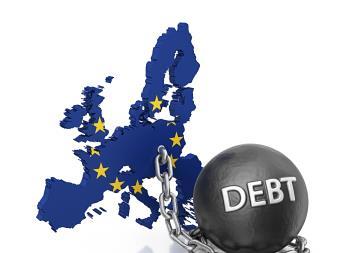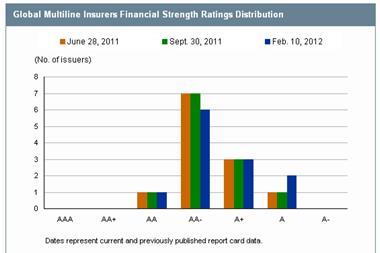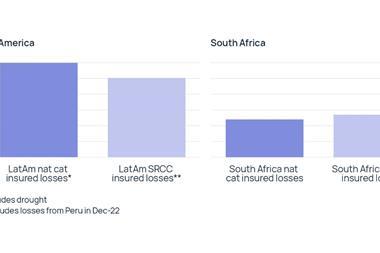Considering the pain it will have to endure if it wants to stay in the single currency, Greece might see a departure to be the lesser of two evils. But could this trigger a domino effect?

Now in its sixth consecutive year of recession, Greece has been forced to enforce unpopular fiscal austerity to try and avoid a messy default (it is already technically in arrears).
With Greece teetering on the edge of a costly exit from the Euro comes also the threat of a spreading financial contagion, according to JLT’s World Risk Review.
The Greek government is stuck between a rock and a hard place. It might consider leaving the Euro to be a more attractive option than a drawn out period of devaluation and crippling public spending cuts.
The impact of this however, warend JLT, would be felt throughout the eurozone and beyond, with unpredictable political and economic repercussions.
Europe’s most vulnerable economies - Portugal, Ireland, Spain and Italy - would be likely to follow suit. In a worst case scenario, the domino effect would speed up their departure from the Euro.
Portugal is the most likely to follow Greece if it exits the Euro. There are some similarities between the two countries.
Portugal’s unemployment rate currently stands at 14% - the highest since the 1980s. It is also in the process of trying to enforce strict tax rises as well as salary and bonus cuts for civil servants, as part of a three year fiscal restructuring plan.
On the plus side, according to JLT, Portugal’s sovereign debt is much lower relative to its GDP than Greece’s – and it has taken a much more rigorous approach to structural reform.
Portugal’s Iberian neighbour, Spain, shares a deteriorating growth forecast. Spain’s youth unemployment rate stands at a staggering 1 in 2 – and there is strong evidence to suggest it will not meet its European Commission targets for deficit reduction, reported JLT.




















No comments yet